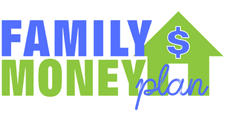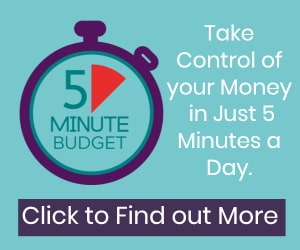In 2012, knelt on the floor, with my forehead resting on the edge of my bed, I was crumpled into nothingness, hysterically sobbing.
In that moment, I felt totally and utterly hopeless, because…
I had a problem that nobody knew.
I was carrying a secretive and out-of-control, $77,000 of debt that was spread across lines of credit, credit cards and loans, with interest payments totalling roughly $700 per month.
And, being absolutely and completely strapped for cash, I had only one (and final) way to clear my next mortgage payment.
Filled with dread and shame, using the last of my available credit, I walked into a bank to cash advance my credit card (yes, one of the worst financial moves ever), to add funds to my chequing account. Once again, I’d ensure my mortgage payment, set to transfer that evening, would clear my account.
Although I satisfied my mortgage payment once again, I wasn’t foolish enough to think I was helping my circumstance. No, I knew, I barely managed to hold this crisis at bay, with the next one idling around the next corner.
My money was completely out-of-control.
I was so overwhelmed, so stressed, so anxious. I didn’t know how to help myself.
You might be wondering, how things ended up this way.
Set Up to Fail
Looking back to my childhood, it’s obvious now that conversations about money, about expenses and budgeting, are crucial to the development of healthy financial habits.
Growing up in my household though, money was never discussed.
Intended to shelter me, my parents decided that financial discussions were best left to adults. Kids were meant to be kids, not meant to be burdened by things like money. My financial illiteracy, resulting from their decision, wasn’t obvious until halfway through my first year of University.
To kick off my first year of University, my mom gave me a lump sum of money for my tuition, books, rent, food etc. At a break over the holidays, the transition of one semester into the next, she asked about the status of the money.
I’d spent it, I told her.
All of it.
Money she’d saved nearly her entire working life, on my behalf, was gone in only one semester.
Even now, I’m embarrassed to admit, I just thought there’d be more.
We failed to discuss the intention of the money; how long it should last; what it was intended for; or the effort required to save it in the first place.
Upon telling her the money was gone, she was dumbfounded. Shocked. Appalled.
She told me to head to the student loan office the next morning, because that was it, there was no more money.
I crossed a line. A big one. And, I knew it.
I spent the balance of my years at University waitressing in a restaurant, using the proceeds from my job and a student loan to cover the cost of my education.
Sadly though, even these life lessons didn’t help me to understand healthy money management.
As you might imagine, subsequently entering a career in Real Estate was troublesome for me. Because now, beyond managing money, I had business expenses coupled with the challenges of irregular income.
Looking back, it might’ve been, the most financially toxic pairing imaginable.
Real Estate for me, and so many others, is filled with big swings in income. The highs were high, and the lows were low.
Big spending followed big pay days. And, stress and debt followed longer lapses in pay.
In time of course, I couldn’t make ends meet. And, since I couldn’t figure out what I was doing wrong with my money, the only obvious and sensical solution was to borrow money.
So, that’s exactly what I did.
Controlling Money
It wasn’t that I didn’t recognize I stunk when it came to money management, it’s that I couldn’t figure out what I was doing wrong, or what I needed to do differently.
To gain some level of control, I started tracking my money.
I downloaded an app, tracking every-single-cent of my spending and my income. I had every transaction categorized, and all my accounts reconciled.
But, even still my debt continued to rise.
Rising of course, until I had no credit left, no savings and nowhere else to turn.
Divine Intervention and A Catalyst for Change
They say that those in denial of a problem often need to hit rock bottom before they’ll make changes in their lives.
That was me.
My debt totalled $77,000, and I wasn’t facing it.
Although sitting on my conscious every minute of every, single day, I wasn’t seeking financial help or making the changes I needed too.
I was stuck…
That is, until I sat down for coffee with a friend.
We were chatting idly, when the topic of finances popped up.
Likely sensing my mood, she pressed me to share my financial truth with her.
At first, irritated at her persistence for something I felt was none of her business, I cracked, and began to unload the ugly gory details of my money crisis.
On that day, I owed the following:
- Student Loan – $333.96
- Mastercard – $7,869.30
- Visa – $10,805.84
- Visa – $4,941.41
- Line of Credit – $11,000.00
- Line of Credit $29,999.24
- Owed to a Friend – $3,300.00
- Car Loan – $9,441.57
The total, $77,691.32.
After writing down my debts, she then pressed me to write out my expenses. She respectfully yet firmly combed through them, telling me the things I needed to cancel, and those I needed to renegotiate.
Most importantly though, she reminded me I wasn’t alone. That I wasn’t the only person in history who’d screwed up with money.
Then, she told me to get busy earning more and spending less.
Shedding My Ego
Reflecting now, it’s obvious that my ego was what kept me financially stuck for so long. Working as a Realtor, I wanted to fit the image of a professional.
I wore clothes I couldn’t afford.
I accepted lunch dates I couldn’t afford.
I went on holidays I couldn’t afford.
Slowly confusing my identity, my character, my loyalty, the essence of me – the internal things, with the sole-sucking external things.
Hitting my bottom, finally tired enough of feeling stressed and less-than, left me thinking less and less about what others thought, and more and more about the things I needed for myself.
I knew, to repay my debts, I’d need another stream of income.
And I knew, waitressing was one of the fastest ways for me to earn more.
I didn’t love the idea of working more.
And, I didn’t love the idea of running into colleagues and clients as a waitress in a pub. Just being there (in my mind) meant they knew that I couldn’t make it in Real Estate – that I failed.
But, to take care of myself, I moved past my fears and got busy instead.
Earning More
I started waitressing in a brand new pub.
Initially, I agreed to work two or three shifts per week.
But, the pub, being new and disorganized, repetitively scheduled me to work six nights a week instead.
As I saw the money come streaming in, I realized I’d rather shelve my social life for a short time, repaying my debt as fast as possible, than drag out the debt repayment over a longer period.
Quickly, I began to see light in my very dark circumstance.
Eventually, I made a spreadsheet detailing all my debt, and chose a debt repayment strategy including the order I’d repay my debts and a goal for how much I planned to repay each month.
While employing a debt repayment strategy like the Debt Avalanche (paying the highest interest debts first) would’ve made the most sense, I first set my sights on repaying a credit card shared with my mom.
Why?
Because, it was sitting heavily on my conscious.
Following that, I focused on the two remaining credit card balances, my car loan, the two lines of credit, my student loan, and finally money owed to a friend.
Crafting a strategy and goals left me motivated. For the first time in way too long, I had a plan.
Each shift I worked, I could see myself reducing damage. And, having a long-term goal, my debt-free date, marked the completion of my suffering.
There was light at the end of the tunnel.
But, you should know, even though I was making more money, I still needed to overhaul my money management skills.
Life Changing Software
You recall that I tracked all my money, right?
I did.
For at least three years, I was tracking my money, but my debt kept growing.
Since I’d exhausted that strategy, I hopped onto Google looking for software that did more than track money.
And, that’s when I stumbled on YNAB, or You Need a Budget.
For whatever reason, I knew, nearly instantly, that YNAB was the tool I needed in my life.
They offered webinars and I watched every-single-one. They had written resources, and I read those too.
In such a short time, I started to ‘get’ money.
I became obsessed with all things personal finance.
So, while the software was incredible, it was really their approach to money that changed my brain.
In 2012, YNAB’s Four Rules were to:
Give Every Dollar a Job
The first rule, Give Every Dollar a Job, meant that money in my possession was meant to be divvied up for different purposes. So, no, it didn’t mean move the money into a bunch of accounts, as the software took care of this, but it meant if I had $2,000 sitting in my bank account, I should know what every-single-dollar of that money was intended for. And then, when I received money (as a gift, as my pay, or whatever) that I’d decide right then, what that money was for.
I started looking to my next paycheck, thinking in advance about the things I need to pay for. So, with $2,000, I’d think, ok, I need to pay for my mortgage, electricity, my cell phone, I need some food, and I need some gas before my next paycheck.
I became proactive rather than reactive.
Save for a Rainy Day
Rule Two, Save for a Rainy Day, means if you have a big bill approaching (even a bill that’s twelve months away), you need a plan. Look ahead to larger purchases, then contribute smaller monthly amounts rather than being financially devastated by the bigger bills.
Imagine your car insurance is due in six months. You’d take the cost of the expense, $1,000 as an example, divide by six, then contribute roughly $165 per month, so when the expense rolls in, you have the money saved.
I started making budget categories for all the things that had previously derailed me. I made categories for my real estate dues, income tax, Christmas, property taxes, home and car maintenance, home and car insurance, etc.
The next time my car needed a repair, I was ready and armed with cash-on-hand having saved smaller amounts every single month.
Big expenses were unable to derail me.
Role with the Punches
Rule Three, Role With The Punches, refers to the unpredictable nature of a budget. It means you might underspend in one area and overspend in another. Budget’s shouldn’t be ridgid. Allocating money into categories via YNAB’s software, means you can take excess money from areas of underspending to cover areas of overspending.
Build a Buffer
Rule Four, is to Build a Buffer.
As months passed, I had a better and better idea of how much money I needed to fund my budget. Funding a budget of course, is different from how much I spent each month. Funding my budget took into account my general expenditures, but also, those less frequent expenses covered by Rule Two – Save for a Rainy Day.
And, once I knew how much it took to fund my budget, I knew how much I needed to save to build my buffer. My buffer, as I got started, was one month of my budget. If it took $4,000 to fund one month’s budget, I would work towards saving $4,000. This meant my paycheck was no longer needed immediately – in a sense, because of my buffer, I could push my paycheck to the month ahead.
Working with a buffer meant I was living on last month’s income. It also meant I had way more time to adjust spending if my income dipped.
Now, lapses in income weren’t scary.
Now, I controlled my money, it no longer controlled me.
Having rules to manage my money left me wanting to evaluate my expenses.
Spending Less
Although I can’t recall exactly, let’s say my monthly budget (at the time) cost me $4,000 per month. Once I had a good sense of this, I wanted to shave it down even more.
Afterall, reducing my budget further, meant more money leftover for debt payments.
And, that meant I’d spend less time working two jobs.
So, expense by expense, I asked myself these two questions:
- Can I eliminate this expense, even temporarily?
- And, if not, can I reduce this expense?
There are so many ways to save money, here are only some of the expenses I worked to reduce:
Interest Rates
Working with YNAB’s four rules, left me more aware of my interest costs, because now they were part of my budget. I realized quickly, that reducing credit interest rates required little effort by me.
So, I made an appointment with my bank to consolidate my debts – helping me to lower my monthly interest costs.
Sadly though, I was denied by the bank. Because I was a contractor, not an employee with steady pay, they wouldn’t help me.
Although this strategy failed for me, I wanted to share it because interest reduction is crucial for those who can swing it.
Bank Fees
Ok, this sounds meager compared to my massive debt load, but I wanted to ditch my $14.00 monthly bank fee. I got rid of my bank accounts with one of the big banks, opting instead for a virtual bank.
The virtual bank had no monthly fees, paying interest on both my checking and savings accounts.
Cell Phone
I called my cell phone provider telling them I wanted to retain the services I currently had (as I needed them for Real Estate), but I wanted to pay less.
Sounds crazy, right!?
But, low and behold, they reduced my bill.
Cable
I cancelled cable instead keeping myself entertained using streaming services and the internet.
Insurance
I started saving to pay my insurance costs in full. I learned that paying my car insurance monthly was costing me money, with those who paid annually receiving a discount.
As I paid my $95 per month, I saved the same amount for a full year. That way, when the renewal date approached, I had a full years payment saved, and paid a little less. Not to mention, the money I saved throughout the year was earning interest in my favor.
Electricity
I became cognizant of my electricity bill. I ensured I turned the lights off when I left a room. I used the dryer less. I hand-washed dishes to avoid the dishwasher.
Car
I tried to be mindful of the amount I used my car, instead opting to walk when I could. If I had errands to run, I made a plan to choose the most efficient route possible.
Food
As I mentioned previously, I was perpetually accepting lunch dates I couldn’t afford. To spend within my budget, I made an effort to make food at home, opting to eat out as little as possible.
A Little Fun and a Little More Money
While I got focused on cutting back and earning more, it dawned on me how much idle stuff I had lying around my house.
And, I started to think that that my used stuff was likely worth some money.
So, I started selling my used stuff online, and, I got really good at it.
Since then, I’ve made thousands selling my stuff.
I’ve sold:
- Furniture
- Jewellry
- Kitchen appliances
- Books
- Decor
- Gaming consoles
- Bags
- Sunglasses
- Electronics
- Athletic equipment
Selling online is one of the easiest and fastest ways to make extra cash.
The End and A New Beginning
In the end, it took me 22 months, or one year and ten months, to repay all my debt.
Yes, it was fast.
And, yes, obviously I made good money during this time.
It’s important to remember though, that my $77,000, might be as daunting as someone else’s $5,000.
Debt, for all of us, is relative.
Looking back now, I can see that debt, is so much more than being broke.
Debt equals stress and anxiety. It wreak havoc on self-esteem and general well being. It slowly and incrementally finds its way into your psyche.
Debt is dangerous, maybe even toxic.
If you have debt…
Know that you’re not alone.
Get started on a new path by dreaming of what your life would be like without debt.
Without stress, what would you do?
How would you feel?
To get started with your debt repayment:
- Ditch Your Ego – impress yourself, not your friends.
- Make More Money – google it. There’s a zillion ways you can earn more.
- Make a Plan – learn to budget, and set your debt repayment strategy.
- Reduce Your Expenses – asking if you can eliminate or reduce your expenses.
There’s zero reasons why you can’t combat your debt.
You are capable.
You are worthy.
And, you, having repaid your sole-sucking debt, will be a force to be reckoned with.
In keeping with the advice offered to me, get busy and beat that debt!!
Gaining Clarity
Debt is way more than not having money. It’s way more than not having the latest and greatest stuff. Debt, left unchanged, wreaks complete havoc on your psyche. It has the ability to destroy self-esteem and
Kelley Olinger is a professional freelance writer and blogger. She resides part-time in Victoria, BC, Canada, and part-time in Scottsdale, Arizona. When she’s away from her computer you’ll find her road cycling or hiking. Having repaid $77,000 in debt, Kelley’s passion is helping others ditch debt and embrace an abundant life through her blog, ReconcileYourWallet.com
Looking for Debt Freedom Stories
Related Articles
- Debt Free Living: What it’s really like
- How to Save $10,000 in a Year
Find this helpful? Share this inspiring story with others!
FREE Ultimate Guide: How To Get Out Of Debt

Sign up for our weekly emails and we will send you our guide to becoming debt free and other useful resources to help you with your money.



